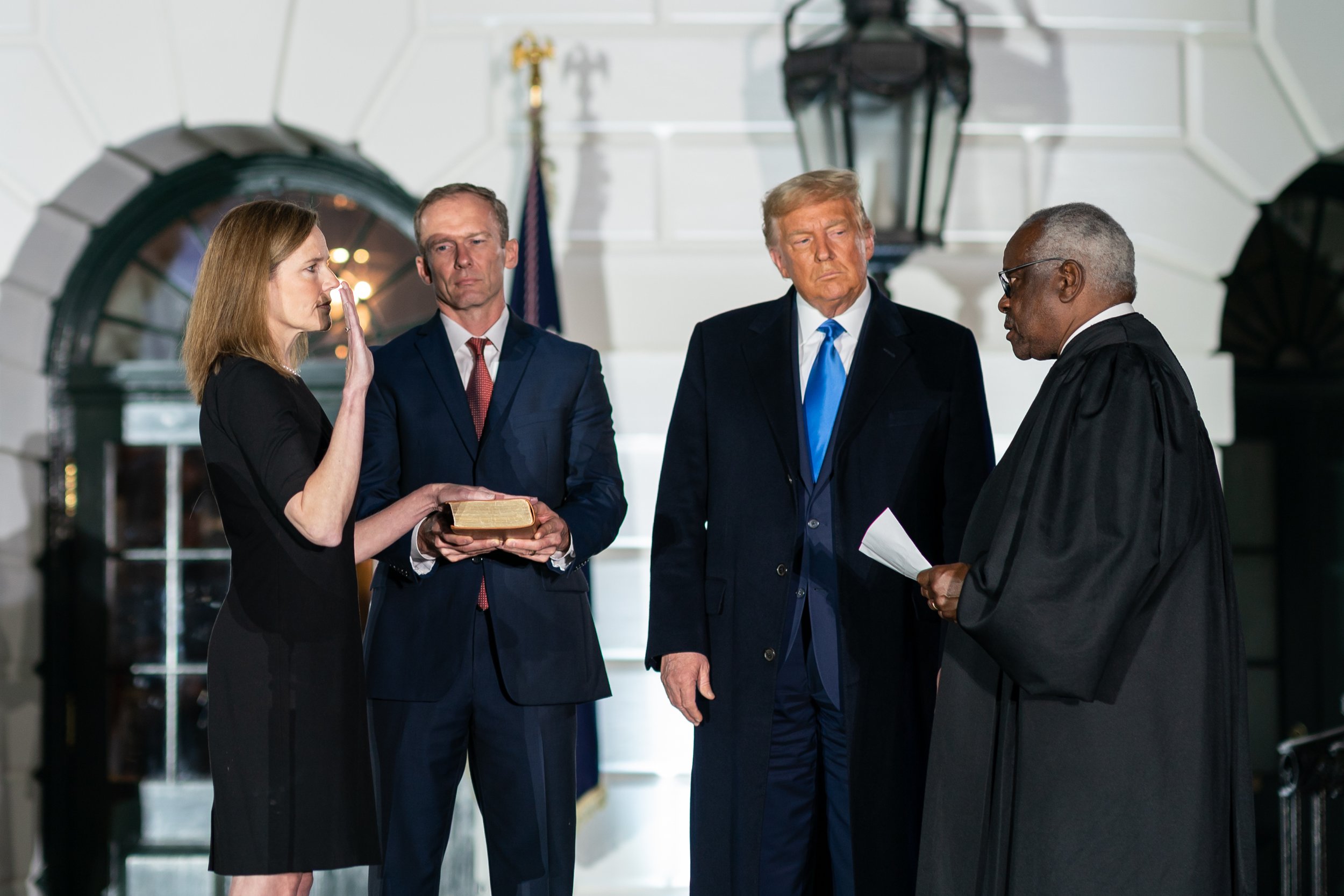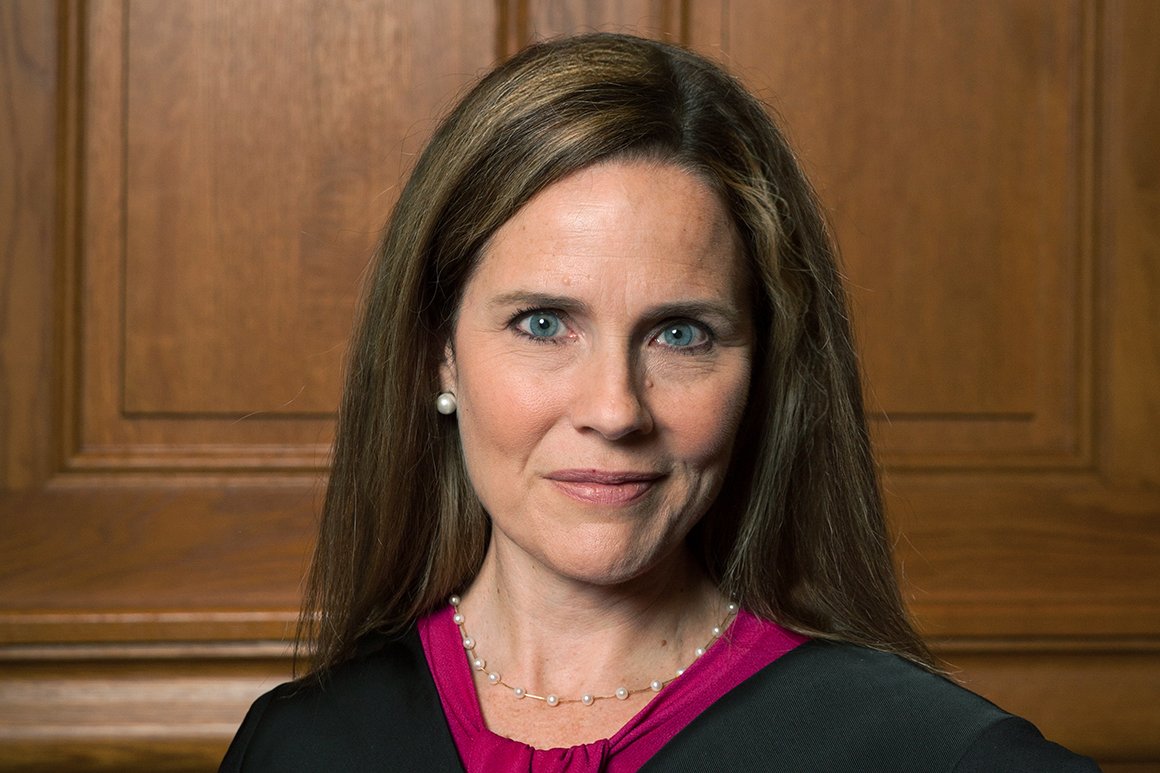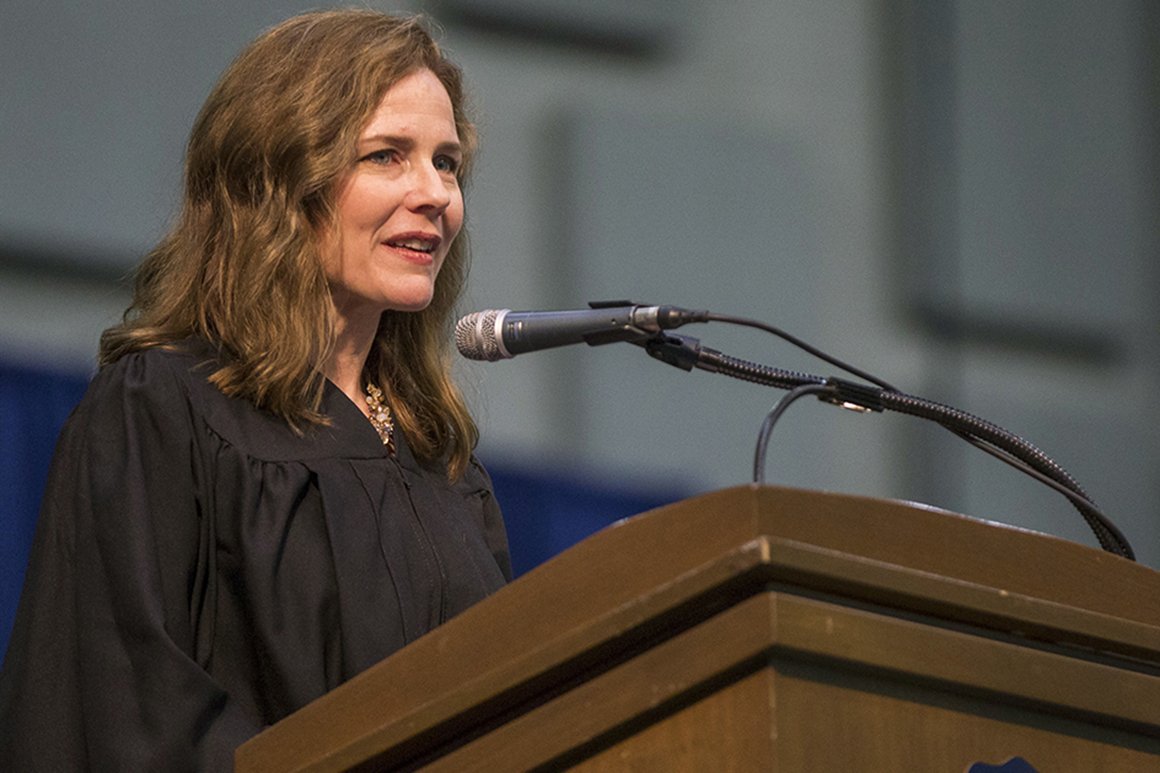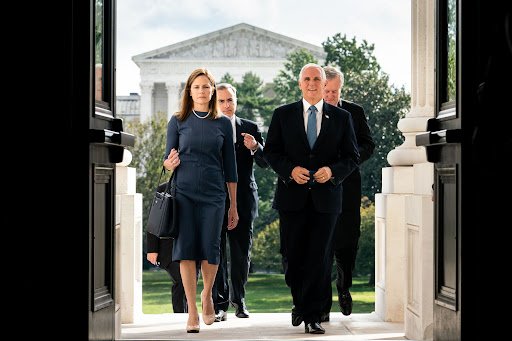AMY CONEY BARRETT
Associate Justice
2020 — Present
Personal Life and Education
Amy Coney Barrett was born on January 26, 1972 in New Orleans, Louisiana. Barrett is the eldest among among her six siblings, consisting of five sisters and a brother. Her father was an attorney at Shell Oil Company and her mother was a high school French teacher and homemaker. She has Irish and French ancestry, with her maternal ancestors hailing from Ballyconnell, County Cavan, Ireland. Her father’s ancestors are also of Irish descent, and her great-great-grandparents emigrated from France to New Orleans.Barrett's family is devoutly Catholic, with her father serving as an ordained deacon at St. Catherine of Siena Parish in Metairie, Louisiana, where Barrett grew up. She attended St. Mary's Dominican High School, an all-girls Roman Catholic high school in New Orleans, where she held the position of student body vice president and graduated in 1990.
Following high school, Barrett pursued her undergraduate studies at Rhodes College in Memphis, Tennessee, majoring in English literature and minoring in French. She graduated magna cum laude with a Bachelor of Arts in 1994, during which time she was inducted into Omicron Delta Kappa and Phi Beta Kappa, while also being recognized as the most outstanding English department graduate in her class. She went on to attend Notre Dame Law School on a full-ride scholarship, where she served as an executive editor of the Notre Dame Law Review. Barrett graduated first in her class in 1997 with a Juris Doctor, summa cum laude.
Barrett Speaking at the University of Notre Dame | Credit: Robert Franklin, Associated Press
Career
After completing law school, Barrett worked as a judicial clerk for Judge Laurence Silberman of the D.C. Circuit and later for Justice Antonin Scalia. Following her clerkship with Justice Scalia, in 1999, she joined the esteemed D.C. law firm of Miller, Cassidy, Larroca & Lewin. In 2001, Barrett assumed the role of the John M. Olin Fellow at Law at George Washington University Law School, and subsequently returned to her alma mater in 2002 as an assistant professor of law. During her tenure as a professor at Notre Dame, she developed a reputation as an expert in federal courts, constitutional law, and statutory interpretation. From 2014 to 2017, Barrett held Notre Dame’s Diane and M.O. Miller II Research Chair of Law, with her scholarship focusing on constitutional law, originalism, statutory interpretation, and stare decisis. In her time at Notre Dame, Barrett received the "Distinguished Professor of the Year" award three times.
In 2010, Chief Justice John Roberts appointed Barrett to serve on the Advisory Committee for the Federal Rules of Appellate Procedure. In May 2017, President Trump nominated Barrett to the Seventh Circuit. In October of that year, the Senate Judiciary Committee voted 11–9 to recommend her nomination to the Senate, after which she was confirmed by a vote of 55 to 43 in the Senate.
Nomination to the Court
Barrett’s name first emerged as a contender for the Supreme Court in 2017, following her confirmation to the Seventh Circuit Court of Appeals. In July 2018, after Justice Anthony Kennedy's announced he would retire, Barrett was reported to be one of three finalists Trump considered, alongside Justice Brett Kavanaugh. After Kavanaugh's selection, Barrett remained a potential nominee for a future U.S. Supreme Court vacancy.
Following the death of Justice Ruth Bader Ginsburg on September 18, 2020, Barrett emerged as a leading candidate to succeed her. On September 26, 2020, Trump announced his intention to nominate Barrett to fill the vacancy left by Ginsburg's passing. Barrett's nomination received widespread support from Republicans, who aimed to confirm her before the 2020 United States presidential election. Democrats, however, generally opposed the nomination, citing controversy about filling the vacancy just prior to the presidential election in light of the Senate Republican majority's refusal to consider President Barack Obama's nomination of Merrick Garland in 2016, more than ten months before the end of his presidency.
On October 22, the Judiciary Committee issued a favorable report on her confirmation with a 12–0 vote, with all 10 Democrats on the committee boycotting the vote. On October 26, Barrett's confirmation to the Supreme Court was approved by the Senate with a 52–48 vote. Every Republican senator except Susan Collins voted in favor of her confirmation, and every Senate Democrat voted against it. On the evening of the confirmation vote, President Trump hosted a swearing-in ceremony at the White House. At Barrett’s request, Justice Clarence Thomas administered the oath of office to her and her husband, Jesse Barrett, held the Bible. The next day, Chief Justice John Roberts administered the judicial oath to Barrett.










